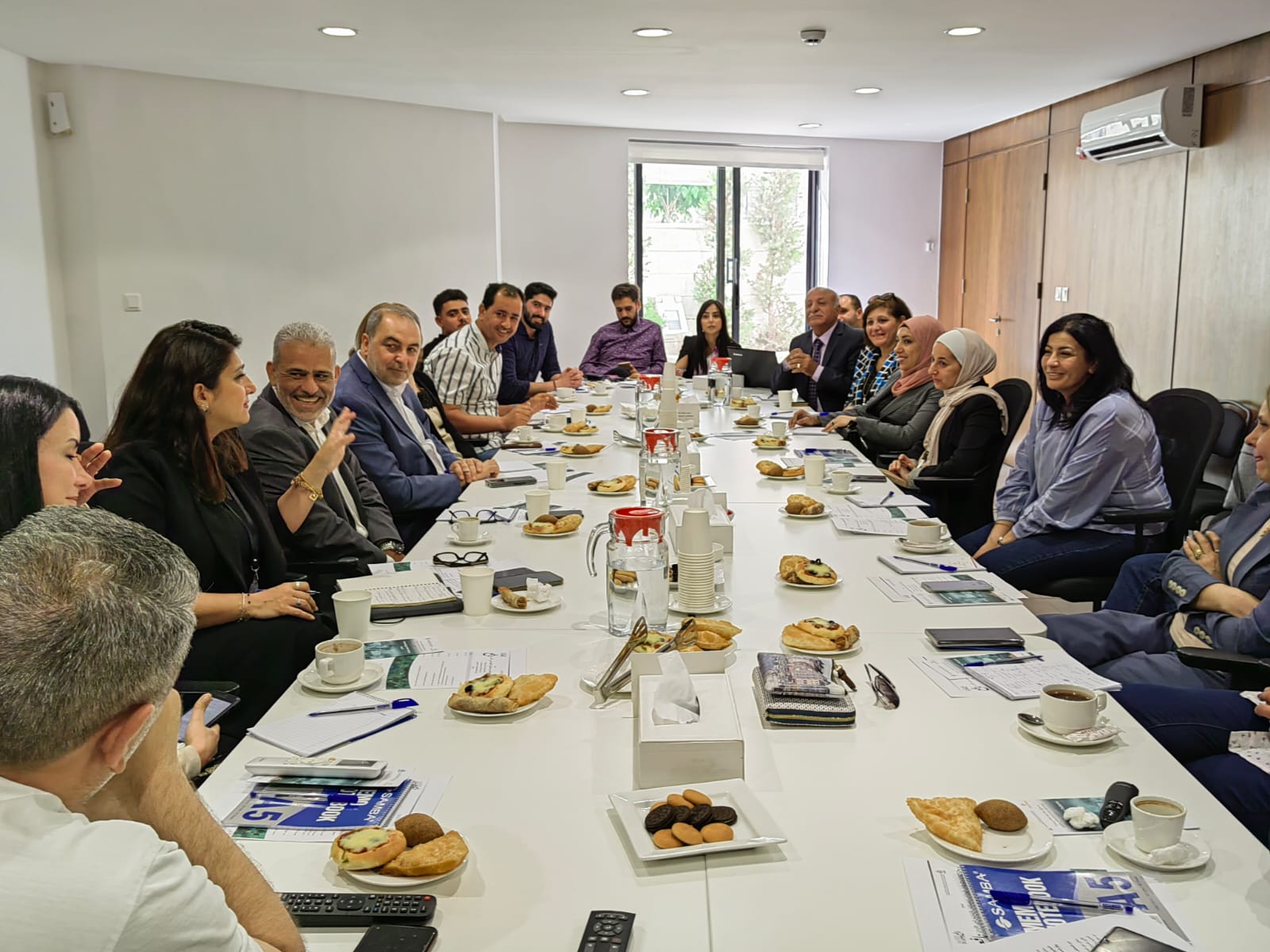To strengthen strategic cooperation between public and private educational institutions, media institutions, initiative creators, and people of interest in the development of the education sector in the Kingdom, and to advocate for these efforts and consolidate participatory and accountable approaches in decision-making, the Arab Renaissance for Democracy and Development (ARDD) and Vision Hope International launched the National Alliance for the Future of Education in Jordan, Wednesday, May 17, 2023.
CEO of ARDD, Samar Muhareb, indicated the need to have a comprehensive approach to education and to provide continuous learning opportunities, taking into account the challenges faced by the education sector that affect Jordanian children, refugees, and parents. She also pointed out that ARDD, within the framework of the objectives of its education strategy, seeks to promote access to quality education for all children regardless of their nationalities and economic, social, and legal status, especially in early childhood, the most important stage in building the child’s personality, analytical abilities, and perception of the world around them.
Muhareb also emphasized the importance of educational reforms according to a holistic and integrated perspective, accountability, exchange of experiences and information, coordination between all parties, and a focus on means of social protection and means of subsistence for refugees and citizens, as well as the need to respond to academic, educational, and developmental challenges, with the involvement of parents in the educational process and the centrality of developing this process for the renaissance of our societies.
On the idea of the alliance, its mechanism of work, and its objectives, Dr. Aseel Shawareb, Education Program Advisor at ARDD, explained that after studying and evaluating the educational plan in the Kingdom, it became clear that we need to move towards comprehensive, quality, and continuous education, dialogue, and exchange of experiences between all official and private institutions and civil society, to develop this trend and boost its success at the national level in the future.
Shawareb went on to explain that the alliance’s strategy will combine a participatory approach that starts from the bottom up, to achieve the interventions required to develop the education sector, by working at three levels: individuals, institutions, and policies. She also highlighted the partnership between ARDD and Vision Hope International through the project “Investing in the Future: Improving the Livelihoods and Education of Minority Refugee Groups within Society in Jordan”, which focuses on providing quality education for all and raising awareness of the opportunities available to citizens, migrants, and refugees, as well as supporting vocational education programs, and providing students with basic knowledge and life skills.
Regarding the most prominent results of the analysis of educational stakeholders in the Kingdom, Shawareb confirmed the existence of logistical, economic, and societal problems related to the integration of people with disabilities in the education sector, in addition to the lack of specialized educational media that provides targeted press, radio, or television media programs, considering that the success of inclusive education requires community motivation and not only resources and institutions.
As for ways to approach reform in a cooperative and participatory manner with governments and society, and to learn from successful experiences in the Arab world and in the international arena alike, the speakers recommended that we need a new model that is not limited to the method of education, but also includes the place and reasons thereof, with the need to approach the reform process and provide an opportunity to launch innovative initiatives and local experiences to address challenges as they arise.
The speakers also stressed that the education crisis in the Arab world is rooted in poverty, unemployment, wars, and conflicts, as 50% of children suffer from learning poverty, which requires the development of curricula as well as teacher’s talents, capabilities, and training, and understanding children’s needs, in addition to the need to review and develop the accountability and quality unit in the Ministry of Education to assess the educational reality in the Kingdom, and the continuation of dialogue and acknowledging educational problems in the absence of a common understanding on general goals.


